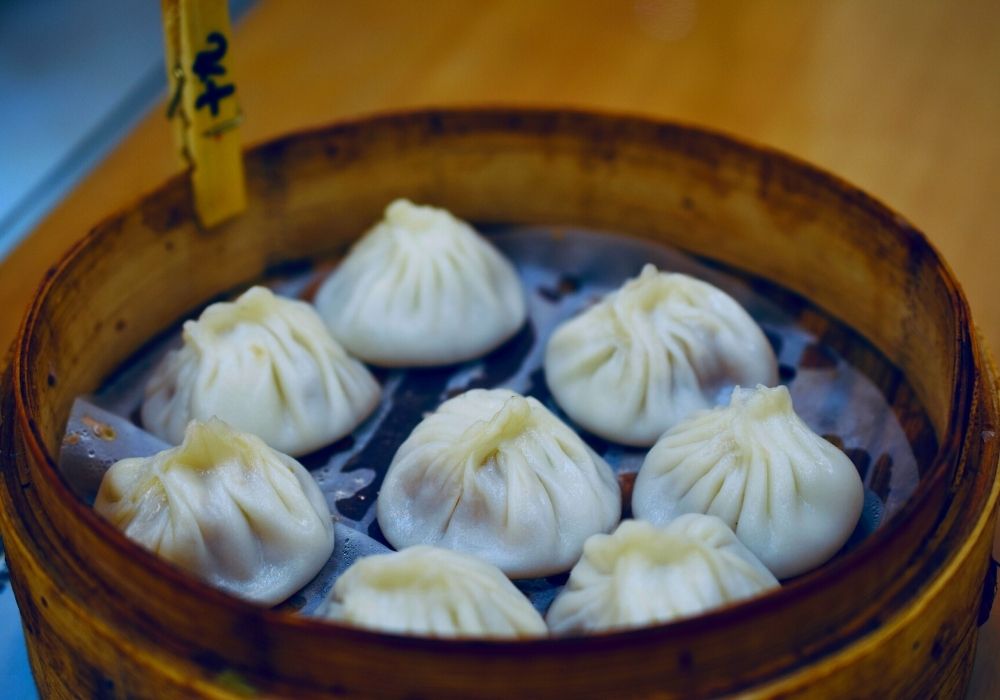Living in China is an incredible experience that isn’t for everyone. If you choose to work and live in China, it’ll change your life in ways you can’t possibly imagine.
Of course, there are many pros and cons of living in China. Some of them you can anticipate, and some will surely surprise you.
I’ve been living in China as a foreigner for almost two years now, and I’m still discovering new sides to this astonishingly diverse country.
In this article, I’ll talk about some of the pros and cons of living in China. I’m sure if you asked another expat in China, you’d get a different list. There’s much to uncover in this vast, fascinating land.
Pros of Living in China
Let’s start with the reasons why living in China is an interesting experience for foreigners.
1. Access to Amazing Places
The highlights of China are some of the world’s top tourist destinations. Many travelers dream about the Great Wall of China, the Terracotta Army in Xi’an, and world-class cities like Beijing and Shanghai.

Visiting these places barely scratches the surface of what China has to offer, and properly visiting them takes a minimum of several weeks. Add two long flights, and that’s more time than the average vacationer has to spare.
When living in China as a foreigner, however, you don’t have to squeeze the highlights into one long trip, but can sample them slowly, one at a time, like a big dinner with Chinese friends before a rotating table of steaming dishes.
And just in case you get tired of China (which is doubtful), right next door are countries such as Mongolia, Vietnam, Nepal, and several Stans, with dozens more within easy flying distance.
2. Job Opportunities
China’s economy is booming, which means countless job opportunities for foreigners. Sure, the hiring process is complicated and the visa process even more so, but once you get through them, you’ll find competitive salaries and lots of benefits.
The cost of living in China varies greatly depending on where you live, but in most cases, you should be able to save money while you work and live in China.
If you want to get an idea of what types of jobs are available, check out hiredchina.com and echinacities.com. Besides English teaching jobs in China, you’ll find opportunities for editing, copywriting, videogame writing, modeling, acting, and more.
3. Safety
This aspect of living in China is especially important to me because I moved from a place that was definitely unsafe.
You can walk around after dark practically anywhere in China without worry. You can leave your apartment unlocked, and indeed many Chinese families leave racks of shoes and children’s bicycles outside their apartment door with no fear of theft.
There’s a corresponding con to this pro of living in China, which I’ll address below: constant surveillance.
4. Nice People
Of the many stereotypes and impressions of China held worldwide, here’s one you may not hear too often. Chinese people are nice.

Sure, as with anywhere else, there are some jerks and weirdos. But once you’re living in China, you’ll quickly be disarmed and pleasantly surprised by the genuine kindness of many Chinese people, as well as their willingness to help and befriend a foreigner.
In fact, you’ll most likely end up making friends with the locals and in turn, will learn about Chinese culture, customs, celebrations, and way of life. All of which is fascinating.
5. Finally Learn Chinese (Mandarin)
Nobody claims that learning Chinese is easy. You don’t only have to contend with the writing system and its obvious difficulties, but also vocabulary and pronunciation that’s utterly unlike English and other European languages. (The grammar is generally straightforward, at least.)
For me, these dissimilarities make the Chinese language interesting. Although after a year and a half I can barely order food in a restaurant, I continue studying it mainly for that reason.
If you’re similarly interested in learning Chinese, living in China means you can support your lessons with real-world practice. Otherwise, it would be little more than an intellectual exercise, like learning Latin — an extremely onerous Latin.
6. Finally Eat Real Chinese Food
It’s no secret that “Westernized” versions of international food pale in comparison to the real thing. For authentic flavors, you shouldn’t seek out burritos in Mexico, California rolls in Japan, or fortune cookies in China.

Nevertheless, many Chinese dishes popular worldwide, such as sweet and sour pork, are widely available in China, and obviously much better.
But buffet-style food is only a small fraction of Chinese cooking.
In fact, China has eight major cuisines, based on region. These include Cantonese, with its dim sum and barbecued pork, and Sichuan, with its spicy hot pot and kung pao chicken.
Besides these eight cuisines, there’s distinctive food in every corner of China. One of my favorites is from the city of Xi’an, home to the Terracotta Army.
Xi’an cuisine uses many styles of noodles, some hand-pulled and broad, some with spicy peanut-based sauce, and some in soup with pita bread crumbled over it.
It also features roujiamo, the Chinese hamburger, which due to its more than 2000 years of history is often alleged to be the world’s first hamburger.
7. Plenty of International Food Available
During my first few months of living in China, this would have been a con, and I would have written “Lack of International Food Available.”
Chances are, if you’re not living in a first-tier Chinese city, your only options for Western restaurants will be McDonald’s, Starbucks, Pizza Hut, and KFC — perhaps a Burger King or two.
If you live in a major city, however, you’ll have no problem finding excellent international food. In Shanghai, Guangzhou, and Shenzhen, I’ve eaten exceptional Mexican food, Turkish food, pizza, sushi, and non-fast food burgers.
If you don’t live in a first-tier city, don’t despair. You can order anything online: cheese, bagels, bourbon, you name it. Browse the popular online supermarket epermarket.com for all the foreign food options.
8. Apps for Everything
One of the great advantages of living in China is the convenience afforded by an array of apps. I just mentioned shopping for food. Many people never set foot in a grocery store, but order everything online, and sometimes for better prices.
In most cases, you never need to speak to a waitress in a restaurant. You scan a code from your table, choose what you want from the menu, and pay, all on your phone.
Restaurant delivery is the same. This one comes with a downside, though. Besides the enormous amount of garbage produced, restaurant takeaway also inundates roads and sidewalks with guys on scooters driving like lunatics.
Didi is the Chinese version of Uber, and it’s much cheaper. Hualala is similar to Uber, but it’s for moving vans, and you have the option to ride in the van to your new apartment.
Taobao is the Chinese version of Amazon, though it’s not exactly the same, because it connects you with many different suppliers offering the same product for varying prices.
For a small additional fee, companies such as baopals.com translate Taobao to English and provide customer service in English.
The king of all apps is WeChat. It’s a combination of WhatsApp, Facebook, Paypal, travel booking sites, and much more. Most people never use cash in China, nor credit or debit cards. It’s all WeChat Pay, or Alibaba pay.
Getting familiar and ultimately dependent upon these apps is a major aspect of what it is like to live in China.
9. Reliable Connectivity
All these apps wouldn’t be so great if there wasn’t easy internet access everywhere. Luckily there is, and also inexpensive cell phone plans with data.
I pay between $ 5 and $ 10 USD per month for mine, and although I’m not constantly on social media, this is enough for regular use of WeChat Pay and Didi.
The COVID pandemic brought another crucial aspect of good coverage to light: the necessity to regularly show a green health code.
Easy-to-use apps in WeChat make it possible to register your health, so you can quickly gain entry to metro stations, shopping malls, and museums.
Of course, anyone concerned about privacy may consider these green health code programs one of the major disadvantages of living in China. They track your every move, and if you happen to be in a neighborhood at the same time as an outbreak, they turn yellow or red, meaning restriction of movement and possible quarantine.
10. Free Museums
In People’s Square in the center of the city, the Shanghai Museum has five floors of ancient Chinese art, calligraphy, coins, ceramics, jade, and furniture.

The ultra-modern Guangdong Museum in Guangzhou’s rapidly developing Zhujiang New Town not only contains an extensive collection of intricate Chaozhou woodcarving but also 20 complete dinosaur skeleton fossils.
Best of all, these two museums and many more in China are free to enter. You may have to pre-register online, though in many cases you can just show up — always with your passport, and usually not on Monday, when they’re closed.
Be aware that smaller museums, national parks, and some historical sites often do charge, mostly in places that get a lot of tourists. But the largest museums in major cities are almost always free.
Cons of Living in China
Just as there are many advantages of living in China, you’re likewise bound to encounter some disadvantages. Here are the big ones for me.
1. The Visa Process
The first disadvantage of living in China occurs before you even get to China.
The process for getting a Chinese tourist visa is fairly straightforward, but the process for a work visa is complicated, confusing, and expensive.
The most important thing to know about this process is that you’ll absolutely need the help of your future employer. They should send you a list of requirements and procedures right away. If they don’t, or if they give vague or incomplete answers to your questions, then watch out.
Among other hoops to jump through, you’ll need three certifications (two from officials in your home country and one from a Chinese embassy or consulate) of documents like your highest degree and a criminal background check.
You’ll need a comprehensive medical exam by an approved doctor, and you’ll probably need another exam once you’re in China. And you’ll need photos, recommendation letters, and more, depending on the job and specific requirements.
2. People Staring at You (and Worse)
Children are the most flagrant. They’ll point at you, tug on their parent’s sleeves, and announce “foreigner,” using words of varying levels of appropriateness and respect.
Parents will approach and ask you to pose for a photo with their children. You may catch someone surreptitiously taking your photo while you’re eating in a restaurant, walking in a park, or lying on the beach.
If you live in a smaller city, you’ll be the center of attention as there probably aren’t all that many foreigners around.
Unfortunately, the COVID pandemic brought about a much more nefarious side to this attention. There’s a pervasive belief in China that COVID is being brought into the country by foreigners.
This has resulted in foreigners being denied entry to places like restaurants and hotels, and in some cases being evicted from their homes, especially during the first six months of the pandemic.
Since then, the government has made efforts to curb discrimination, but suspicion persists.
Until COVID finally goes away for good, the average expat in China will regularly experience people scrambling away from them on public transportation or the sidewalk. This is usually accompanied by dirty looks and a hand or shirt sleeve quickly raised to the mouth.
3. Lack of Space, Personal and Otherwise
China is crowded, and Chinese people are generally used to being surrounded by others. They have no problem pushing someone out of the way on the subway. Sometimes I can understand this. Some people are so engrossed in their phones that they have no idea they’re blocking an exit.

People tend to stand way too close when they talk to you. Every time one of my students comes within inches of my face to ask me a question, the chorus (only the chorus!) of the old Police song runs through my head: “Don’t stand, don’t stand so…”
Furthermore, when you’re living in China, not only will your personal space be violated on a regular basis, but you may end up living in an apartment that’s smaller than a rich person’s closet.
And the bathroom — particularly the bathroom. My wife still hasn’t gotten used to the showerhead mounted on the wall directly opposite the toilet.
4. Constant Surveillance
Stand on any street corner, public park, or shopping center in China, and you’ll need both hands to count the number of cameras pointed at you.
In my most recent university classroom, I counted eight cameras, along with two microphones hanging from the ceiling on different sides of the room.
As mentioned above, this comes with an advantage: China is overwhelmingly safe. Consequently, this one doesn’t bother me too much. But I’ve met numerous expats in China who are seriously bothered by it.
5. The Language
You may recall that I listed “Finally Learn Chinese” under pros. Well, until you actually learn it, the language barrier will be a huge con for you in China.

Even if you study simple phrases over and over, like for asking directions, until you have them perfect (or as close as you can get), people won’t understand you because they’ll assume you’re speaking English.
Chinese words use four tones, and unless you get the tones just right, no one will understand you.
You can study the characters like crazy and learn to read street signs and menus fairly quickly. But actual communication will be years, if not decades, in the making.
It’s best to have Google translate or something similar on your phone while living in China.
Conclusion
As you can see, sometimes the pros and cons of living in China closely intermingle. A pro to one person may be a con to another. This is especially true for cultural things, such as the language and the food.
Some of these disadvantages of living in China may actually become advantages over time.
This was the case with my initial difficulty in finding Western food. It forced me to try real Chinese food and also seek out a website that had more options than I could have found in any one supermarket.
I hope this article has given you a better idea of what it is like to live in China. Please ask any questions or give your own pros and cons in the comments.
The post 15 Pros and Cons of Living and Working in China appeared first on Goats On The Road.

